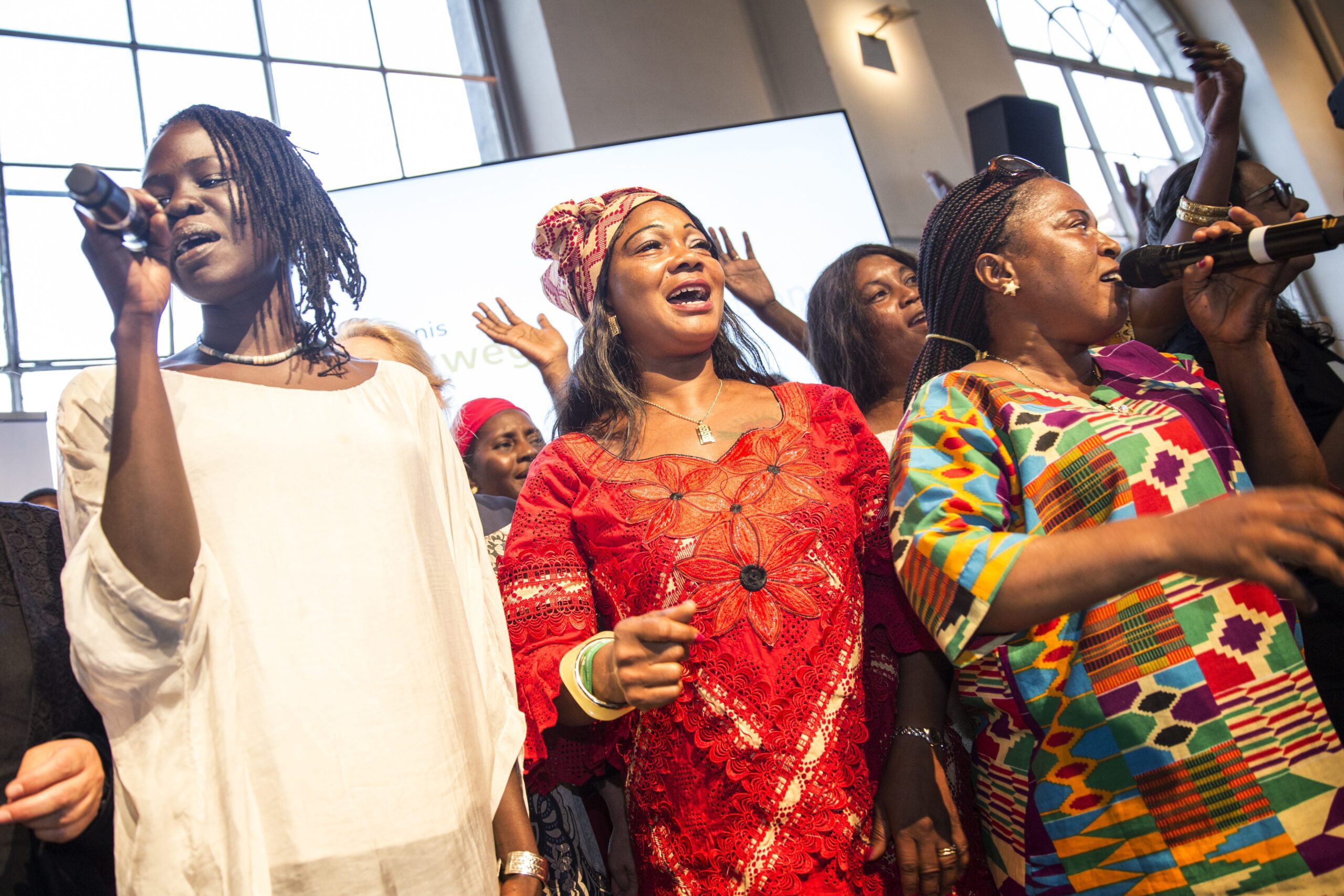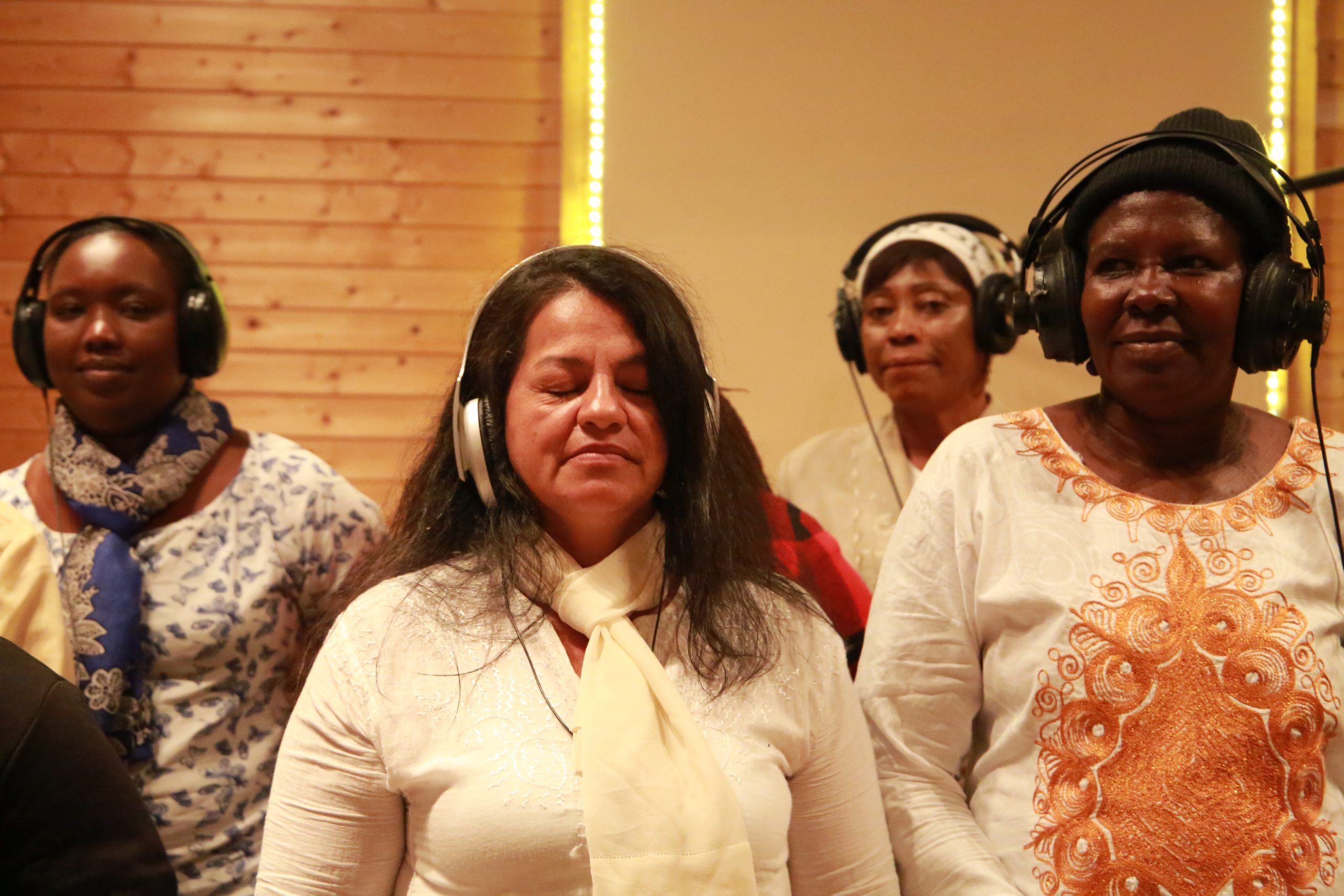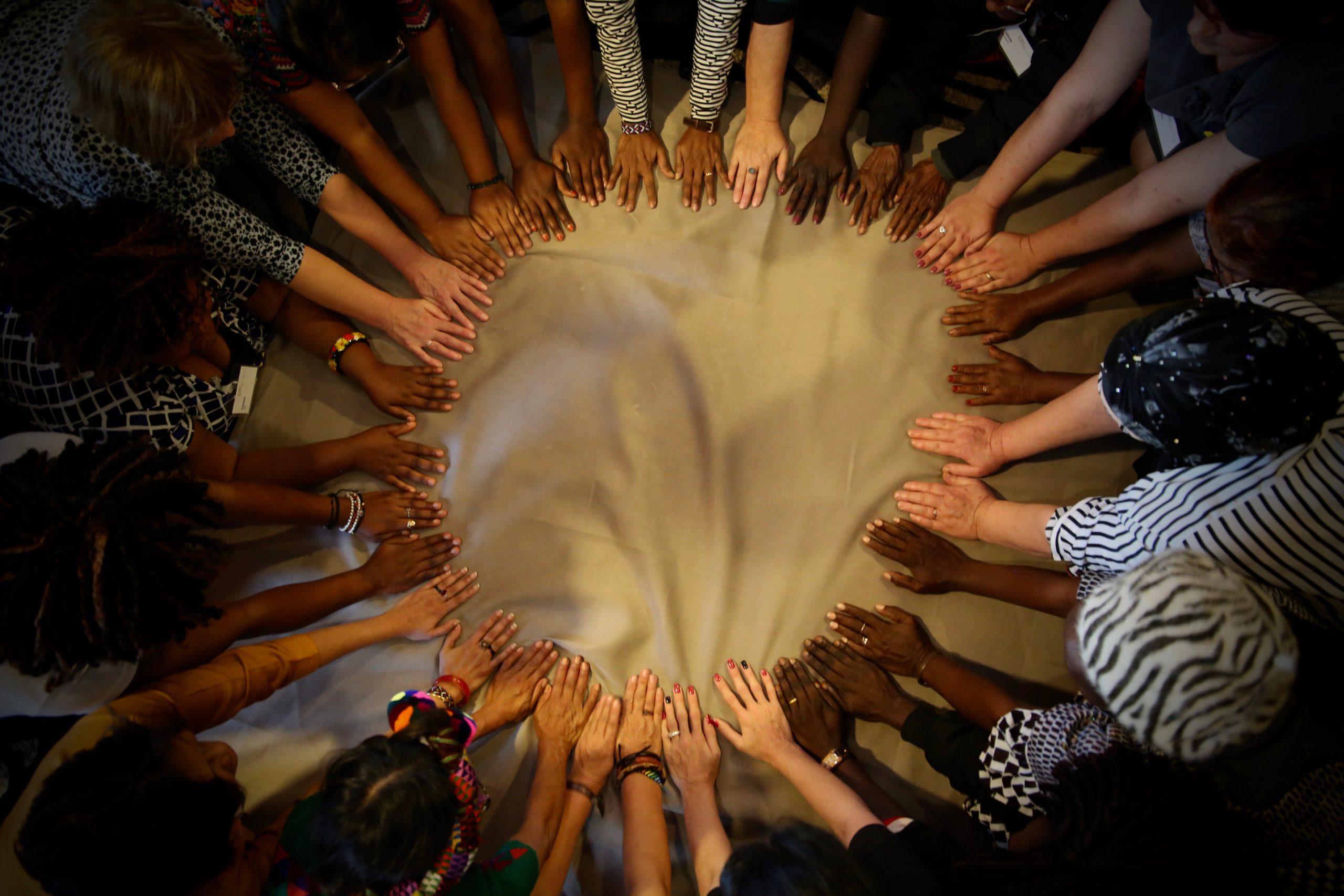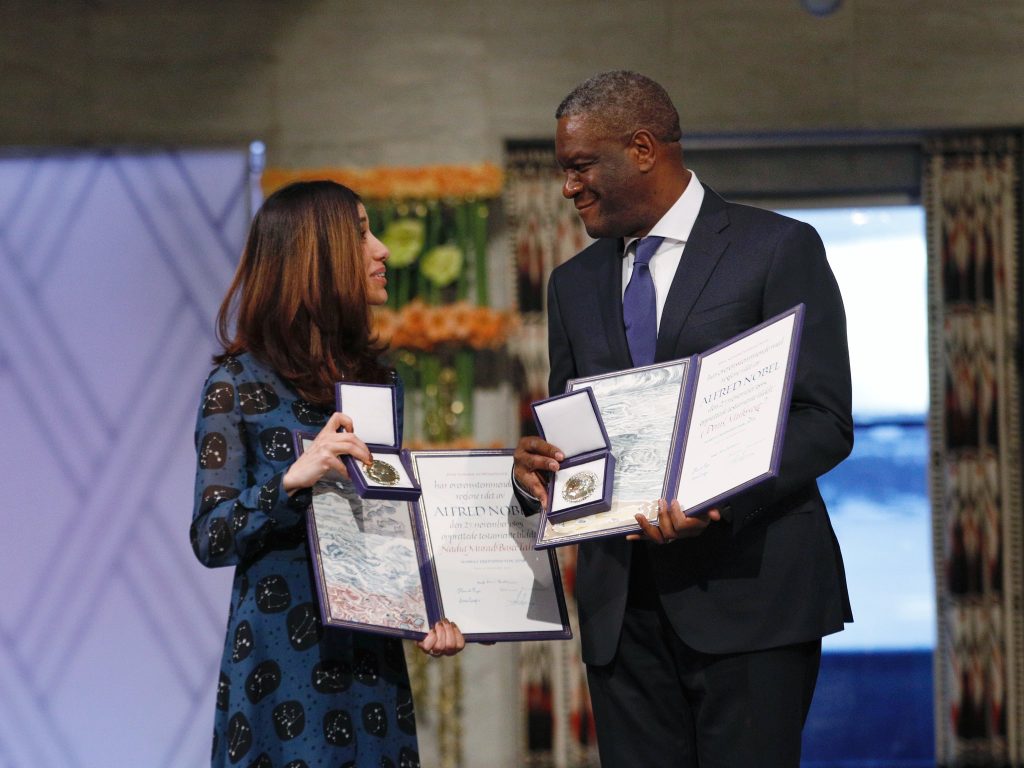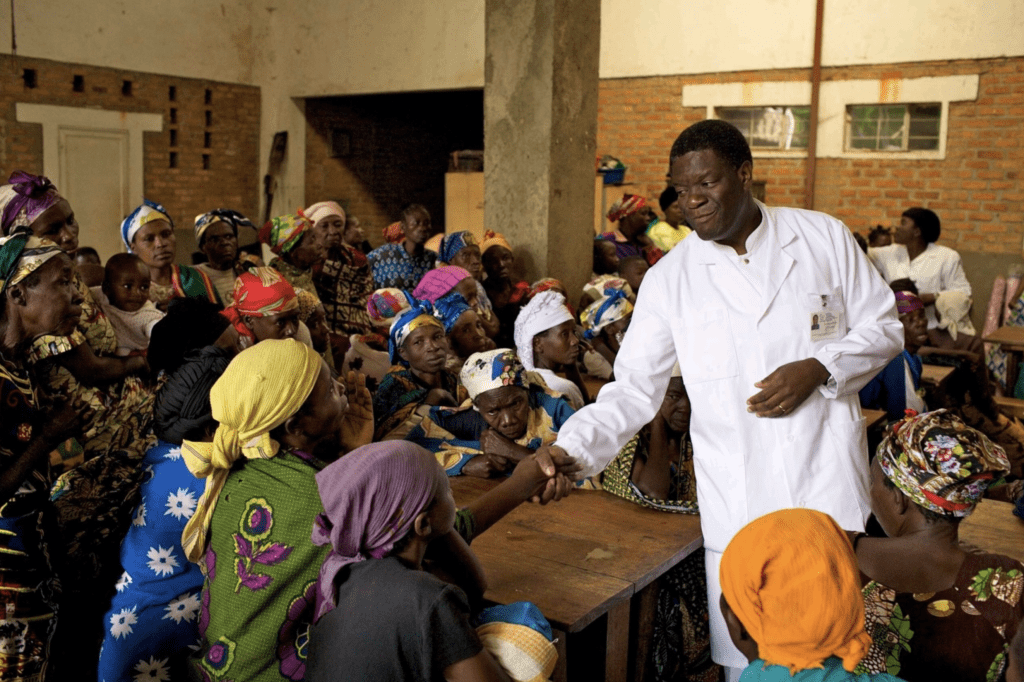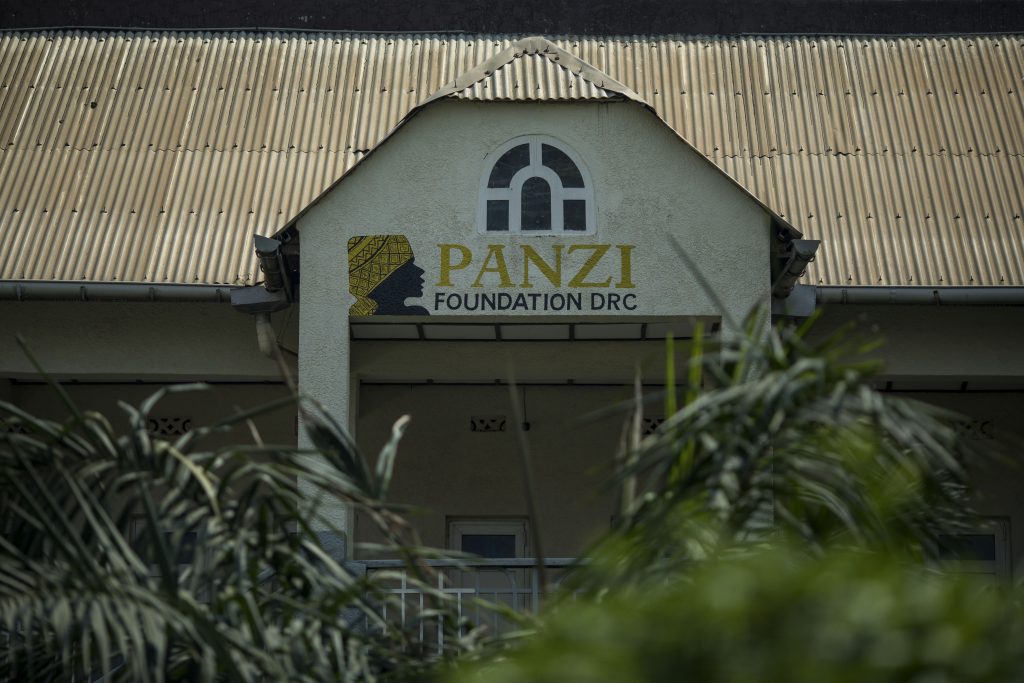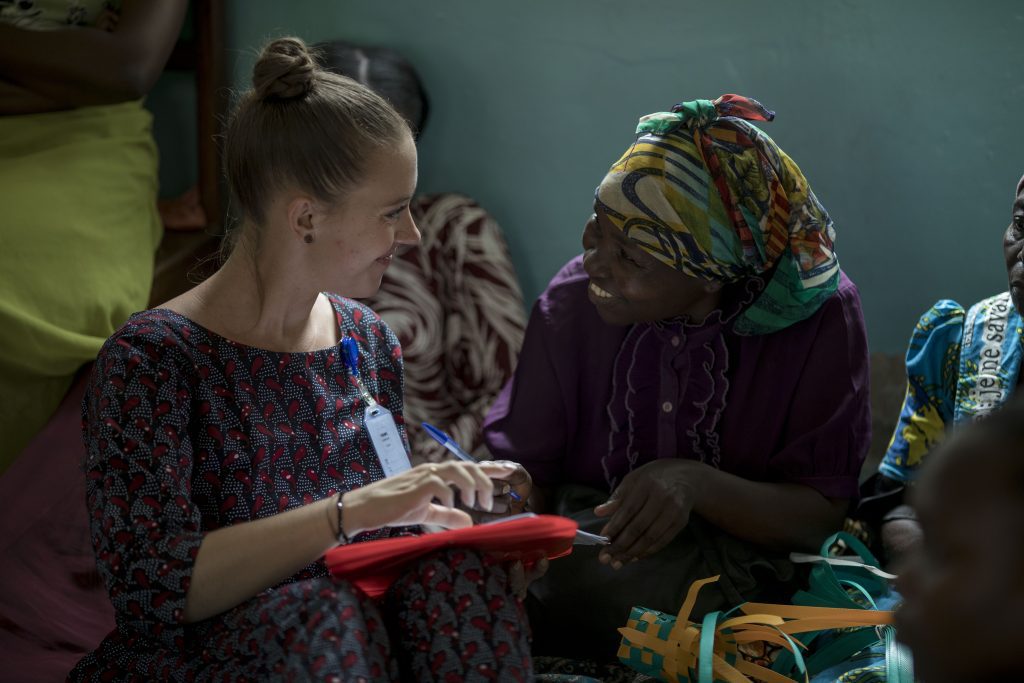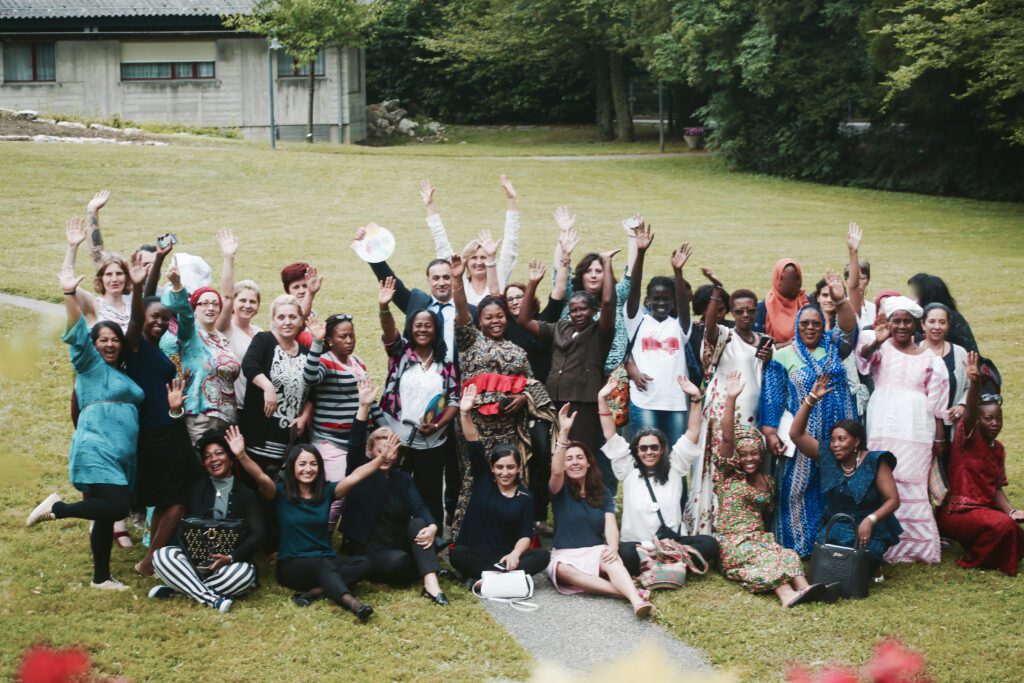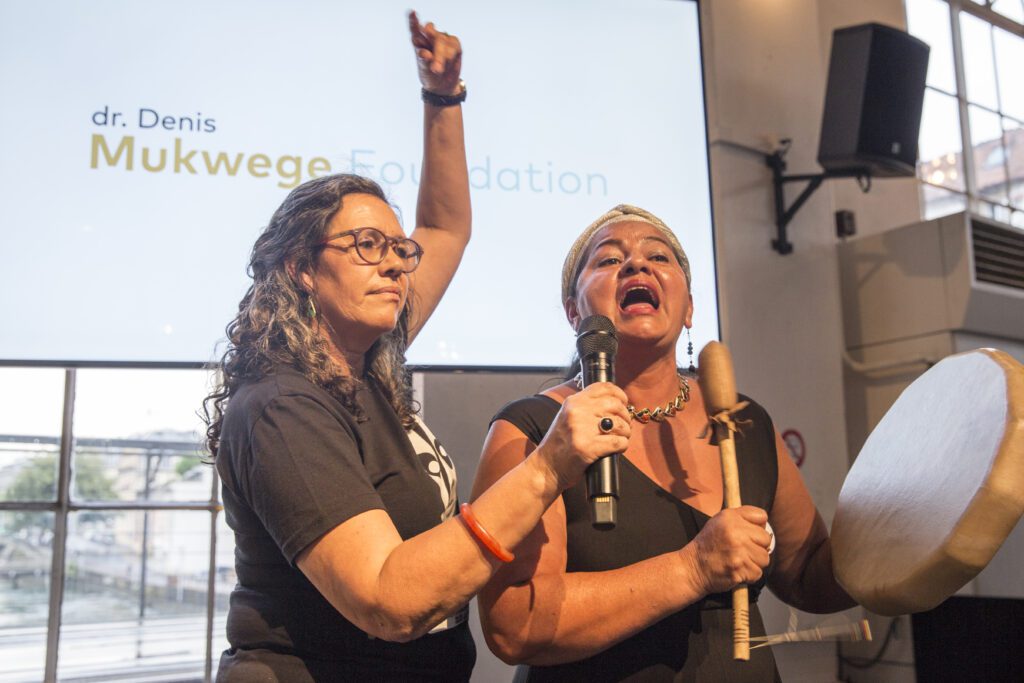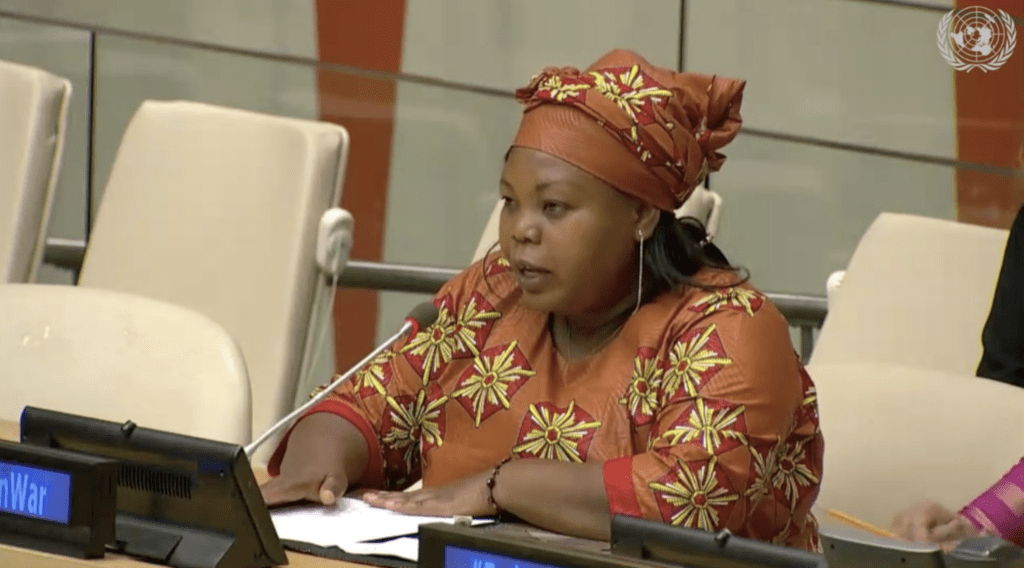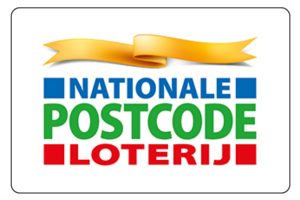Our story
Founded in 2015, the Mukwege Foundation works with survivors of conflict-related sexual violence globally to change the response to sexual violence in conflict.
Our inspiration is the vision of holistic, survivor-centred care developed by Dr Denis Mukwege and his team at Panzi Hospital in the Democratic Republic of Congo.
Dr Mukwege is a world-renowned gynaecologist and human rights activist from east DRC. With Nadia Murad, he is the co-laureate of the Nobel Peace Prize 2018 for his global efforts to end the use of sexual violence as a weapon of war.
The Panzi Model of Holistic Care
Dr Mukwege founded Panzi Hospital in 1999 as a maternity hospital for the city of Bukavu. However, as the conflict in eastern DRC escalated, and more victims of sexual violence sought care at Panzi Hospital, the focus of the hospital shifted to providing care to survivors of sexual violence.
In 2008, Panzi Foundation DRC was created to support the hospital and provide a range of other services, such as legal assistance, psycho-social support and socioeconomic programmes. Together, Panzi Hospital and Foundation are recognised as a centre of excellence, providing holistic, compassionate care for survivors of conflict-related sexual violence.
The impact of their work in DRC inspires us to transfer their best practices to other conflict settings. The Mukwege Foundation works in close partnership with a pool of experts at Panzi DRC, drawing on their outstanding skills in working with survivors of conflict-related sexual violence.
Building a survivor-led movement to end sexual violence as a weapon of war
In 2017, the Mukwege Foundation organised the first global retreat of survivors of conflict-related sexual violence in Geneva with 22 survivors from 14 countries. For the majority of the participants, it was the first time they met survivors of conflict-related sexual violence from other countries, and it was then that they understood how widespread the use of sexual violence is as a weapon of war.
It was also the first time that many of the survivors experienced having a safe space to speak out and be heard. They presented a public exhibition, ‘Hidden Voices,’ to an audience of more than 200 people, and they performed their song, ‘Little Bird’, on stage.
At the end, a Liberian survivor summed up the power of that experience:
“We began to sing, and I saw the crowd. I saw many people came to watch our performance. And I felt that we begin a new life again. Yes, we begin a new life again.”
With funding from the Dutch Postcode Lottery, we worked with survivors to establish their global network, SEMA, a movement with local roots and global reach. The name was chosen by survivors because it resonated with so many of them. SEMA means ‘speak out’ in Swahili, the mother language of Dr Mukwege.
In parallel, the Mukwege Foundation has supported the formation and work of new, national survivor-led networks in CAR, DRC, Iraq, Mali, Nepal, Nigeria, South Sudan and Ukraine, and of South Sudanese survivors displaced in northern Uganda.
Championing survivor-led advocacy
In 2019, together with survivors of conflict-related sexual violence, Dr Mukwege and Nadia’s Initiative, we established the Global Survivors Fund: an innovative organisation with the mission to ensure that survivors of conflict-related sexual violence have access to reparations and other forms of redress globally.
This initiative is the realisation of a vision long held by survivors who told us that reparations are essential to provide justice and healing. Read more about this innovative work here.

